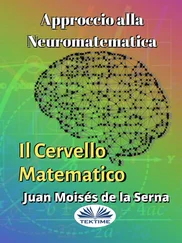Juan Moisés De La Serna - Are You HyperSensitive? - Discover All Keys
Здесь есть возможность читать онлайн «Juan Moisés De La Serna - Are You HyperSensitive? - Discover All Keys» — ознакомительный отрывок электронной книги совершенно бесплатно, а после прочтения отрывка купить полную версию. В некоторых случаях можно слушать аудио, скачать через торрент в формате fb2 и присутствует краткое содержание. Жанр: unrecognised, на английском языке. Описание произведения, (предисловие) а так же отзывы посетителей доступны на портале библиотеки ЛибКат.
- Название:Are You HyperSensitive?: Discover All Keys
- Автор:
- Жанр:
- Год:неизвестен
- ISBN:нет данных
- Рейтинг книги:5 / 5. Голосов: 1
-
Избранное:Добавить в избранное
- Отзывы:
-
Ваша оценка:
- 100
- 1
- 2
- 3
- 4
- 5
Are You HyperSensitive?: Discover All Keys: краткое содержание, описание и аннотация
Предлагаем к чтению аннотацию, описание, краткое содержание или предисловие (зависит от того, что написал сам автор книги «Are You HyperSensitive?: Discover All Keys»). Если вы не нашли необходимую информацию о книге — напишите в комментариях, мы постараемся отыскать её.
Are You HyperSensitive?: Discover All Keys — читать онлайн ознакомительный отрывок
Ниже представлен текст книги, разбитый по страницам. Система сохранения места последней прочитанной страницы, позволяет с удобством читать онлайн бесплатно книгу «Are You HyperSensitive?: Discover All Keys», без необходимости каждый раз заново искать на чём Вы остановились. Поставьте закладку, и сможете в любой момент перейти на страницу, на которой закончили чтение.
Интервал:
Закладка:
It can predict the level of academic success, and thus also the professional future of the students, long before they are able to be aware of their skills; it is also used in staff selection, to find the ideal candidate for the position, who does not have to be the best qualified, nor the one with the most experience.
While the IQ has been equated to the very concept of intelligence, it has been questioned over time, understanding that it is not a unitary thing but that there are various intelligences such as spatial intelligence, verbal intelligence, mathematical intelligence, musical intelligence, …
The evolution of the concept of intelligence has allowed to analyze different aspects of the human being that until then had not been contemplated such as the least or the greatest stimuli processing capacity.
Thus, during the first half of the twentieth century Dabrowski (1948) developed the Theory of Emotional Development to explain qualitatively different levels of human development, which he called The Theory of Positive Disintegration.
This theory tries to explain certain differentiating cognitive characteristics, such as hypersensitivity or the high level of concentration and abstraction demonstrated by certain people, establishing five levels: primary integration, one level disintegration, spontaneous multilevel disintegration, organized multilevel disintegration, and finally secondary integration.
The concept of over-excitability which refers to the inherited trait continues to be used from this theory, therefor the greater the over-excitability the greater the capacity and the power of development.
The author indicates that over-excitability can be seen in five areas: psychomotor, emotional, intellectual, sensitive, and imaginative, that is to say, these are the areas where it could stand out.
1.2. The Profile of the Highly Sensitive Person
At the present moment, a lot of research supports the existence of a particular way of feeling, thinking and interacting, thus it has been estimated that High Sensitivity is present in approximately 20% of the population (Aron and Aron, 1997), the highly sensitive person being given the acronym HSP and highly sensitive children HSC, who have a peculiar way of processing information and are also very creative, but as a counterpoint can experience high levels of stress very easily so sometimes they avoid certain social activities.
Among the characteristics of these people, it is found that they are good observers, they look even at the most subtle details, they also feel more bothered than the rest in the face of high levels of stimulation, such as noise and crowds, showing strong emotional responses, in addition approximately 70% are introverted.
As for gender there are as many sensitive men as there are women (Aron,1996), and although the presence of testosterone can have some later effect, the culture in which they live is the one that will make a difference in their sensitivity, since in some cultures men are forced to hide their sensitivity to look more like a typical man and avoid social problems.
While high sensitivity has so far been talked about as if it were a unique feature, some research has suggested that within this group it is possible to distinguish three groups of environmental sensitivity evidenced by the highly sensitive child scale and identification of sensitivity groups, published in Developmental Psychology (Pluess, 2017).
This instrument distinguishes the highly sensitive population, approximately 25 to 35%, from those with an intermediate sensitivity, between 41 and 47%; and those with low sensitivity between 20 and 35%.
It should be noted that there are many qualities that are visible and latent in a highly sensitive person, for example, they possess artistic talent linked to the creativity they manifest. Professionals or amateurs, the HSP demonstrate passion for some kind of art, whether musical, architectural, pictorial, etc., so it is common that they express themselves with phrases such as, “I could not live without my paintings” or “I am deeply in love with jazz since I was very young”.
Their social relationships can also be fruitful if they want, since highly sensitive people are more aware of the thoughts and emotions of others, thus obtaining more information from the nonverbal language of the other person and become more intuitive, being able to guess what the other thinks or feels at a given time. This gives them the virtue of understanding the other person or knowing if they are lying for example, this is evidenced by phrases like “I fully understand how my child feels” or “What happened hurts me as much as it hurts them”.
Any personal relationship can be very fruitful for a HSP since they are thoughtful and act more attentively and conscientiously, evaluating future causes and consequences and they not only care about others and society, but they also care about the environment. The mind of a HSP analyzes the process of how things came to be how they are, what will happen depending on the action, so they have reflections like, “what will happen if I do not approve everything in June” or “what would happen if everyone had electric cars”.
HSP are usually considerate people, due to their great empathy, because they learn naturally to understand how the other feels and develop a considerate and sometimes suggestive way of addressing others, being able to express themselves with phrases such as, “Is it okay if we do so?” or “I suggest everyone give their opinion”.
Other qualities of highly sensitive people are the harmony with nature, animals, the beach, or plants. Highly sensitive people discover that nature has an effect on them that transmits them calm and relaxation.
The High Sensitivity or Sensitivity of Sensory Processing is expressed as an awareness of the subtleties of stimuli, and the excess of stimuli manifests in their behaviour. This extreme sensitivity can be associated with perfectionism, the intense and excessive way to generate ideas and vulnerability to noises, smells, or textures. We can relate it to creativity, the ability to understand others and feel what others feel, the sense of justice, and respect for the other person.
Dabrowski observed how creative people showed higher levels of empathy, moral responsibility, self-reflection, and sensitivity. During times of crisis, they show symptoms related to internal conflict, feelings of inferiority, guilt, anxiety, or hopelessness.
Other more current research (Aron, Aron and Jagiellowicz, 2012) has shown that what we previously thought was introversion, shyness, empathy, hyperactivity, creativity, and other behavioural factors, when they come together in the same person and are shown to have been born with them, form a trait that has been called the Trait of the highly sensitive person. Although people born with this trait have a lot in common, each one also has their uniqueness and above all, each forms their personality depending on the life that they live.
The main characteristics of the highly sensitive person, present from birth and lasting throughout the existence of the individual, affecting in turn all areas of their life are as follows (Aron, 2010):
1. Depth of cognitive processing. It is the most peculiar trait of the HSP, although it cannot be directly observed it is inferred from their behavior, and inferred from their thinking.
An indicator of this appears as a deep and intense reflection on each new situation in the subject’s life, collecting a lot of information from around them and thinking about it deeply before acting, which leads them to arduous decision-making and requires more reaction time for each task.
This reflection leads to a stronger emotional reaction, where everything else affects them, they also manage to generate unusual and creative ideas due to this passionate and underlying way of processing information. They can also show a surprising degree of knowledge about themselves or others, a sense of long-term consequences and a great capacity for cognitive interpretation in the face of conversations or tasks.
Читать дальшеИнтервал:
Закладка:
Похожие книги на «Are You HyperSensitive?: Discover All Keys»
Представляем Вашему вниманию похожие книги на «Are You HyperSensitive?: Discover All Keys» списком для выбора. Мы отобрали схожую по названию и смыслу литературу в надежде предоставить читателям больше вариантов отыскать новые, интересные, ещё непрочитанные произведения.
Обсуждение, отзывы о книге «Are You HyperSensitive?: Discover All Keys» и просто собственные мнения читателей. Оставьте ваши комментарии, напишите, что Вы думаете о произведении, его смысле или главных героях. Укажите что конкретно понравилось, а что нет, и почему Вы так считаете.












